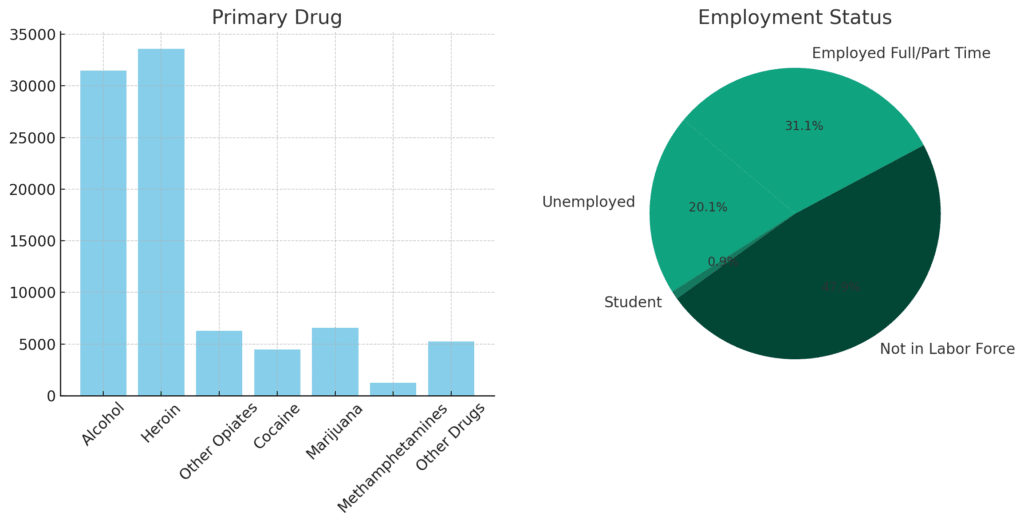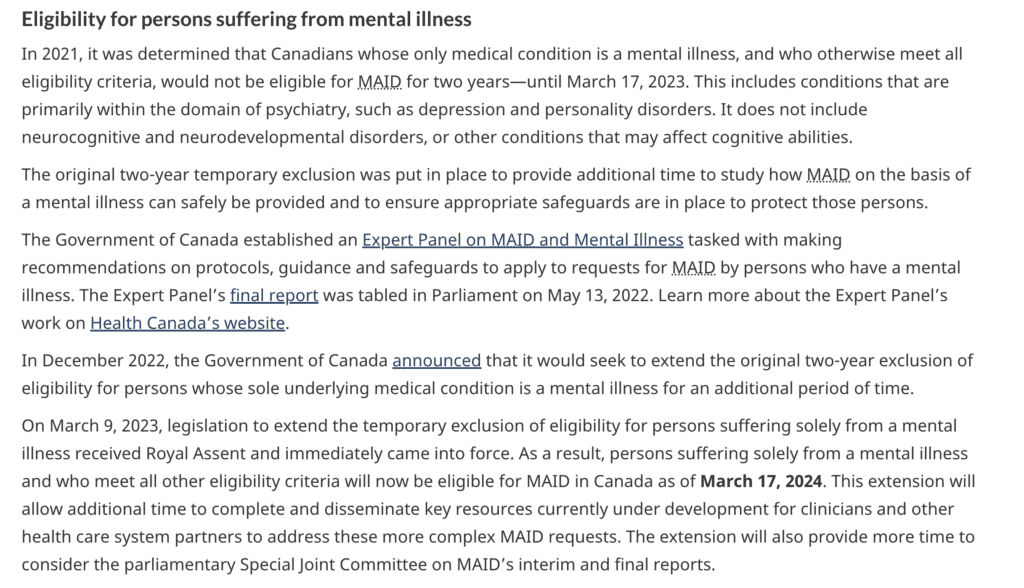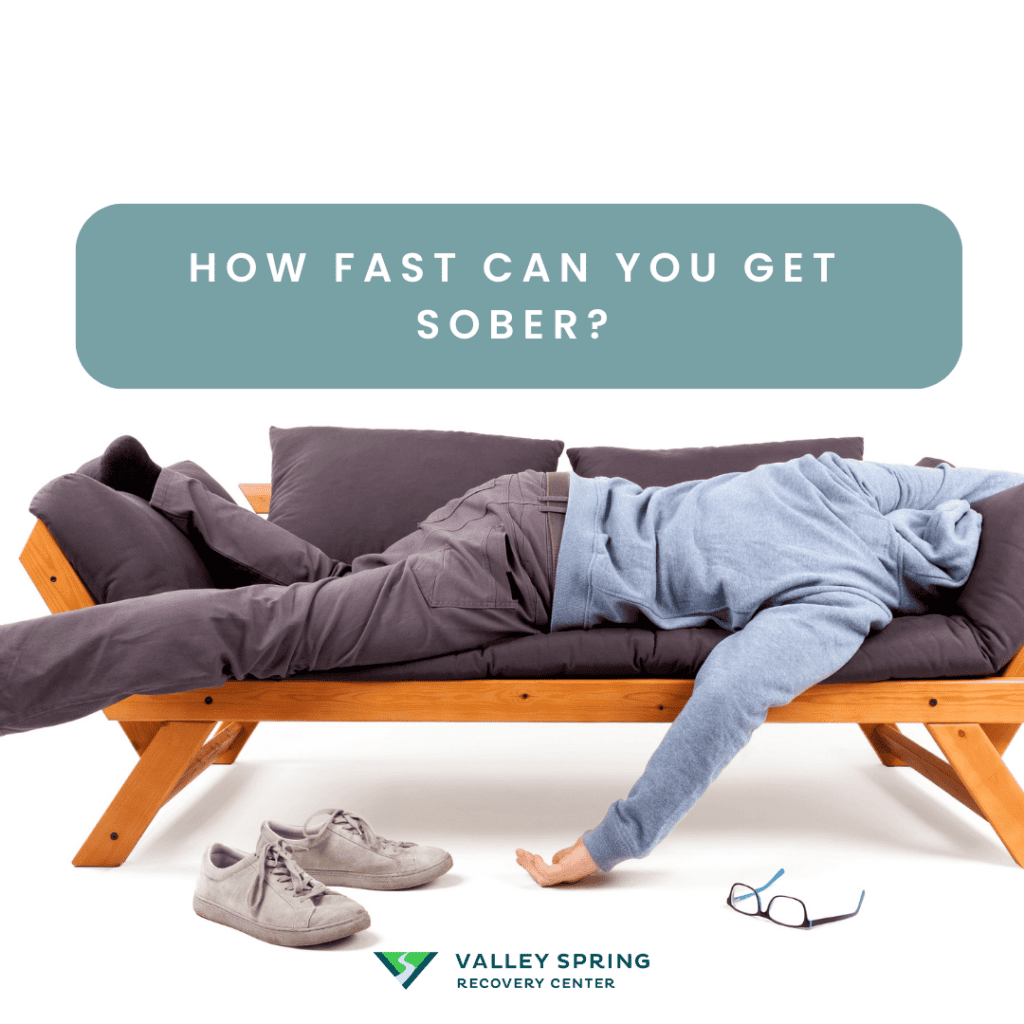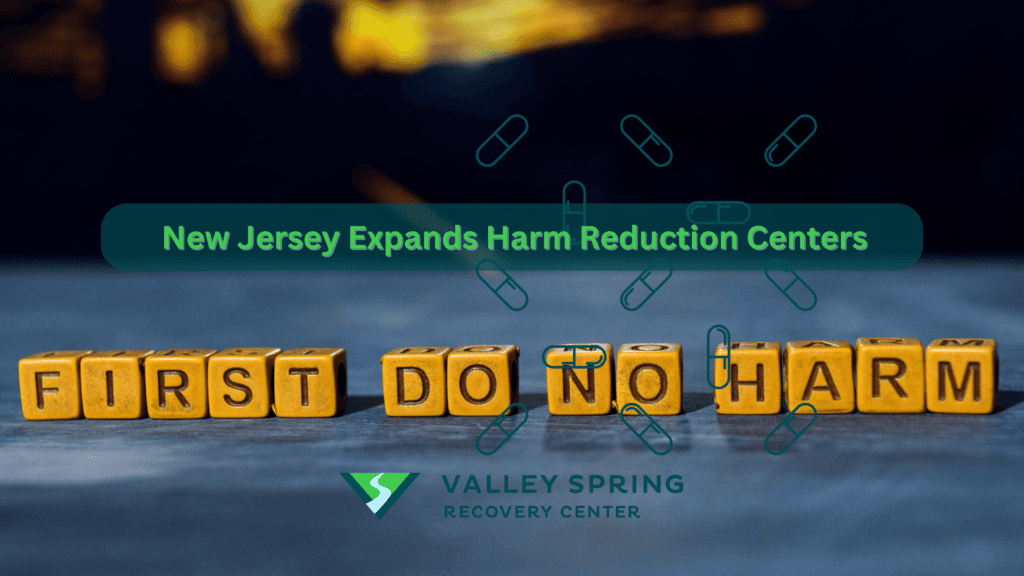Choosing the right drug rehab center is a critical decision that can significantly impact your recovery journey. In New Jersey, you’ll find a diverse range of options catering to various needs and preferences, including NJ drug rehab centers. This...
Choosing the right drug rehab center is a critical decision that can significantly impact your recovery journey. In New Jersey, you’ll find a diverse range of options catering to various needs and preferences, including NJ drug rehab centers. This guide will help you discover top-rated facilities, free and state-funded treatment options, luxury rehab centers, and more, enabling you to make an informed decision for your path to recovery.
Key Takeaways:
Explore NJ drug rehab centers for a range of free & luxury treatment options Inpatient, outpatient & medication-assisted programs provide comprehensive care tailored to individual needs Support groups and aftercare services offer social support, resources and motivation in recoveryExploring NJ Drug Rehab Centers

New Jersey provides an abundant variety of addiction treatment services and rehab centers, catering to individuals with various substance abuse issues. With 369 drug rehabs in New Jersey, you’ll find facilities offering:
Holistic treatment Christian and faith-based programs Luxury treatment Executive rehabNo matter your financial situation, there are options available, including private health insurance and state-funded treatment centers.
In the following segments, we will analyze in detail the top-rated facilities, free and state-funded treatment options, and luxury rehab centers available in New Jersey. Armed with this information, you’ll be better prepared to find the ideal rehab center that aligns with your recovery goals.
Top-rated Facilities
New Jersey is home to several top-rated drug rehab centers, providing comprehensive treatment programs and support systems. Facilities such as Boca Recovery Center, Footprints to Recovery, SOBA New Jersey, and Sunrise House offer a wide range of services to help individuals overcome addiction. At AAC’s Sunrise House Treatment Facility, for example, you can expect a comprehensive selection of addiction treatment options, including medication-assisted treatment, cognitive behavioral therapy (CBT), and family therapy.
These top-rated facilities often address co-occurring disorders, such as post-traumatic stress disorder (PTSD) and major depression, which can significantly impact substance use disorders. Offering customized treatment programs that focus on both addiction and mental health, these high-ranking facilities in New Jersey provide a robust base for sustained recovery.
Free and State-Funded Treatment Options
For individuals without insurance or facing financial constraints, New Jersey offers state-funded and free rehabs, as well as payment plans to make treatment more accessible. Rehab scholarships and sliding scale payment plans are also available to help cover all or part of the cost of treatment for those who qualify. The Substance Abuse and Mental Health Services Administration is a great resource. They provide referrals to local treatment options for people in need..
Through financial assistance and flexible payment options, New Jersey guarantees increased access to the necessary addiction treatment services for more individuals. No one should have to forego treatment due to financial constraints, and these free and state-funded options help to bridge the gap for those in need.
Luxury Rehab Centers
Luxury rehab centers in New Jersey offer high-quality treatment in a comfortable and upscale setting. Facilities like Valley Spring Recovery Center, BlueCrest Recovery Center, and Avatar Detox provide:
Private accommodations Upscale amenities Massage and spa-like services Gourmet meals Smaller staff-to-patient ratioAt these luxury centers, you won’t be disappointed with the services offered. They provide an enhanced level of comfort and privacy.
With a focus on premium treatment, experienced staff, and confidentiality, luxury rehab centers in New Jersey offer a variety of treatment programs, including:
Inpatient Detox Outpatient Holistic therapy optionsThe cost of treatment at these centers may vary depending on factors like location, type of treatment programs offered, and program length. For accurate pricing information, it’s advisable to contact specific luxury rehab centers in New Jersey.
Understanding Addiction Treatment Services in New Jersey

In New Jersey, addiction treatment services, including alcohol addiction treatment, cover a wide range of options such as inpatient, outpatient, and medication-assisted treatment programs. Each type of program is tailored to cater to different needs and preferences, ensuring that individuals have access to the most appropriate care for their unique situation.
In the subsequent segments, we will analyze the differences between inpatient, outpatient, and medication-assisted treatment programs available in New Jersey. This information will help you determine which type of program may be the best fit for your recovery journey.
Inpatient Treatment Programs
Inpatient treatment programs in New Jersey provide comprehensive treatment services in a residential setting, offering 24/7 care and support. These long term rehabs in NJ encompass various services, including:
Medical and behavioral therapy Medically assisted detox Holistic therapies A year of residential treatment 12-step meetings Group counselingAll of these services are provided in one location, ensuring that individuals receive the necessary support and treatment for their recovery at our alcohol treatment center.
Inpatient settings typically provide:
Well-equipped patient suites Housekeeping and laundry services High-quality dining options Amenities to enhance comfort Some facilities even provide smart room technology, all-private rooms, and access to specialized care programs.With their comprehensive approach, inpatient treatment programs in New Jersey can provide a strong foundation for lasting recovery.
Outpatient Treatment Programs
Outpatient treatment programs in New Jersey offer flexible schedules and varying levels of care to suit different needs and preferences. These programs prioritize access to care for the 1.3 million individuals in need in New Jersey and are generally considered less restrictive than inpatient programs. Intensive Outpatient treatment options in New Jersey include intensive outpatient programs (IOPs) and standard outpatient services, providing tailored and convenient addiction treatment options.
Highly regarded outpatient treatment programs in New Jersey include:
Recovery Centers of America at Raritan Bay Moving Mountains Recovery Recovery at the Crossroads The Counseling CenterThese programs employ evidence-based methods and are dedicated to helping individuals with substance use disorders. Outpatient programs in NJ typically offer therapies such as individual, group, family, marital/couples, and psychotropic medication treatment, with some programs providing additional therapies like music, art, and expressive therapy.
Medication-Assisted Treatment
Medication-assisted treatment (MAT) is an evidence-based practice that combines the use of medications, like buprenorphine and methadone, with therapy and education. These medications help alleviate withdrawal symptoms and reduce cravings related to opioid addiction. MAT is used to address opioid and alcohol addiction, treating both the physical and psychological aspects of addiction.
Research has shown that MAT is effective in reducing opioid use and its associated symptoms. Methadone, buprenorphine, and naltrexone have been proven to help individuals with opioid use disorder sustain recovery and avoid relapse. As a result, medication-assisted treatment is considered a clinically effective option for addiction treatment in New Jersey.
Valley Spring Recovery Center is a boutique dual diagnosis drug and alcohol rehab center that works with most insurance providers. Contact us today, you don’t have to stay sick any longer.
Mental Health Services in NJ Drug Rehab Centers

Mental health services provided by NJ drug rehab centers perform a significant role in the recovery process. Many individuals struggling with addiction also face co-occurring mental health disorders, such as:
depression anxiety PTSD bipolar disorder personality disordersBy addressing both addiction and mental health conditions, dual diagnosis treatment can significantly improve treatment outcomes.
Various therapeutic approaches are utilized in dual diagnosis treatment, including cognitive behavioral therapy, which is considered one of the most effective treatments for anxiety disorders. By offering tailored mental health services alongside addiction treatment, New Jersey drug rehab centers provide comprehensive care that addresses the unique needs of each individual, fostering lasting recovery.
Insurance Coverage for NJ Drug Rehab Centers
Insurance coverage has a notable impact on enhancing the accessibility of drug rehab to those who need it. In New Jersey, the following insurance options may provide coverage for treatment:
Private insurance: Private insurance policies may provide partial coverage for treatment, depending on individual policies and needs. Medicare: Medicare offers coverage for alcohol and substance abuse treatment in both in-patient and outpatient settings. Military insurance: Military insurance, such as TRICARE, may also cover drug rehab programs in New Jersey.AAC’s Sunrise House treatment center, for example, accepts a variety of private insurance plans, including Blue Cross Blue Shield, Aetna, and United Healthcare. For those without private or state-funded insurance, payment plans and alternative options can be arranged to ensure access to treatment. It’s important to verify your insurance benefits and contact your insurance provider directly to confirm the extent of your coverage for drug rehab in New Jersey.
Navigating the Admission Process
The procedure for admission into NJ drug rehab centers may vary based on the specific facility, though it typically involves an initial assessment, verification of insurance, development of a drug rehab treatment plan, financial arrangements, admission, detoxification (if necessary), and participation in a treatment program. When selecting the ideal rehab center for your needs, consider factors such as treatment approach, specialties and focus, level of care, facilities and amenities, location, cost and insurance coverage, and success rates and reviews.
To prepare for admission, gather necessary documents such as:
Identification Insurance information Medical records Any related legal documentsThe duration of the admission process may vary, ranging from a few days to a couple of weeks, depending on the facility and individual circumstances. For more information on the admission process, contact the specific rehab center you’re considering.
Valley Spring Recovery Center is a boutique dual diagnosis drug and alcohol rehab center that works with most insurance providers. Contact us today, you don’t have to stay sick any longer.
Rehab After Work in New Jersey: Balancing Recovery and Professional Life
Embarking on the journey of recovery while maintaining professional responsibilities can be challenging, but the availability of “Rehab After Work” programs in New Jersey provides a vital solution. These programs recognize the need for flexibility, allowing individuals to access crucial rehabilitation services after their work hours.
By offering a supportive and convenient environment, rehab after work in New Jersey empowers individuals to prioritize both their careers and their journey towards sustained recovery.
These programs typically integrate evidence-based therapeutic approaches into evening hours, accommodating the schedules of working professionals. The emphasis on flexibility not only removes barriers to seeking help but also encourages individuals to actively participate in their recovery without compromising their professional commitments.
In this way, Rehab After Work programs in New Jersey play a pivotal role in fostering a balance between work responsibilities and the pursuit of a healthier, substance-free life.
Support Groups and Aftercare Services

Support groups along with aftercare services are integral components of sustained recovery in New Jersey. They provide social support, a sense of empowerment, and motivation to those who have experienced or are currently facing similar obstacles. Local support groups in New Jersey include Alcoholics Anonymous (AA), Narcotics Anonymous (NA), and group therapy sessions listed on Psychology Today.
In addition to support groups, aftercare services in New Jersey encompass a range of services that assist individuals in their recovery process. These include:
Counseling and therapy sessions Support groups Relapse prevention programs Life skills training Vocational training Assistance with locating housing and employmentBy offering ongoing support and resources, aftercare services help individuals maintain their sobriety and successfully reintegrate into their communities.
Local Support Groups
Local support groups in New Jersey offer a network of peers facing similar challenges, providing encouragement and motivation to those in recovery. These groups create a supportive atmosphere for achieving and maintaining sobriety, allowing individuals to share their experiences, learn from others, and build lasting connections.
There are several support groups available in New Jersey to assist those in recovery, such as Alcoholics Anonymous (AA), Narcotics Anonymous (NA), and group therapy sessions listed on Psychology Today. By participating in local support groups, including alcohol rehab programs, individuals can establish a strong foundation for long-term recovery and foster a healthy, sober lifestyle.
Aftercare Services
Aftercare services in New Jersey play a significant role in supporting sustained recovery. These services include ongoing therapy, case management, and relapse prevention planning. Therapy sessions provide individuals with the opportunity to explore the root causes of their addiction, learn new coping skills, and create strategies to sustain sobriety in the long run.
Case management is an integral part of aftercare services, providing comprehensive support and coordination of services to individuals in recovery. Case managers assist clients in accessing resources such as housing support, vocational assistance, and food support, help build a sober social network, and connect clients with outpatient treatment, therapy, and 12-step groups.
By offering a wide range of aftercare services, New Jersey drug rehab centers ensure that individuals have the necessary support and resources to maintain their recovery and avoid relapse.
What Are The Most Commonly Abused Drugs That People Seek Treatment For In New Jersey?
Certain drug addictions are more likely to require rehabilitation due to their highly addictive nature and the severe physical and psychological effects they can have. Among the substances most commonly requiring rehab in New Jersey are:
Heroin Rehab: Heroin, an opioid, is known for its highly addictive nature. Rehabilitation for heroin often involves a combination of medication-assisted treatment (MAT), therapy, and support groups. The physical dependence created by heroin necessitates a carefully managed detoxification process, often under medical supervision. Alcohol Rehab: Alcohol addiction is widespread and can lead to severe physical and psychological dependence. Rehab typically includes detoxification, counseling, and support groups like Alcoholics Anonymous (AA). Long-term alcohol abuse can lead to serious health complications, making professional treatment essential. Cocaine Rehab: Cocaine is a powerful stimulant that can cause psychological dependence. Treatment often involves behavioral therapies since there are no FDA-approved medications for cocaine addiction. Therapy focuses on changing patterns of behavior and thought related to drug use. Methamphetamine (Meth) Rehab: Meth is an extremely addictive stimulant. Rehabilitation often includes a combination of behavioral therapy and counseling. The intense psychological grip of meth makes recovery challenging, requiring a comprehensive treatment approach. Prescription Opioids Rehab: This includes drugs like oxycodone, hydrocodone, and fentanyl. Addiction to prescription opioids is often treated with MAT alongside counseling and behavioral therapies. Benzodiazepines (Benzos) Rehab: Used to treat anxiety and insomnia, benzos can be highly addictive. Rehab usually involves tapering off the drug slowly under medical supervision, coupled with therapy to address the underlying issues of anxiety or insomnia. Marijuana Rehab: While less addictive than other substances listed, some individuals develop a dependence on marijuana. Treatment focuses on behavioral therapy and counseling to address the psychological aspects of addiction. Club Drugs Rehab: This includes substances like MDMA (Ecstasy), GHB, and Ketamine. Treatment often focuses on behavioral therapies and support groups. Hallucinogens Rehab: While physical addiction to hallucinogens (like LSD or psilocybin) is rare, psychological dependence can occur. Treatment usually involves psychotherapy and support groups.Each substance has unique challenges and requires a tailored approach to rehabilitation. The treatment for any addiction typically involves a combination of detoxification, therapy (both individual and group), medical treatment, lifestyle changes, and ongoing support to prevent relapse. Here are two visual representations of drug abuse statistics in New Jersey according to the Substance Abuse Overview 2021 Statewide study by NJ.gov:
 Primary Drug: The bar chart on the left displays the number of individuals associated with each primary drug. This gives a clear visual indication of the prevalence of each drug, with Heroin and Alcohol being the most common.
Employment Status: The pie chart on the right shows the distribution of employment statuses. It’s evident that a large portion of individuals are ‘Not in Labor Force’, followed by those ‘Employed Full/Part Time’.
Primary Drug: The bar chart on the left displays the number of individuals associated with each primary drug. This gives a clear visual indication of the prevalence of each drug, with Heroin and Alcohol being the most common.
Employment Status: The pie chart on the right shows the distribution of employment statuses. It’s evident that a large portion of individuals are ‘Not in Labor Force’, followed by those ‘Employed Full/Part Time’.
Get Started With Drug and Alcohol Treatment In New Jersey
In conclusion, New Jersey offers a diverse range of drug rehab centers and addiction treatment services to accommodate various needs and preferences. From top-rated facilities to free and state-funded options, luxury rehab centers, and comprehensive mental health services, you have countless resources at your disposal to embark on your path to recovery. By understanding the available treatment options, insurance coverage, and support networks, you can make an informed decision and take the first step toward a healthier, sober life.
Frequently Asked Questions
What are some recovery skills?
Recovery skills include making healthy lifestyle choices, developing positive coping strategies, setting achievable goals and engaging in meaningful activities.
How do coping strategies help clients prevent relapse?
Coping strategies such as distraction, seeking support, emotional release and self-care can help clients prevent relapse by providing them with alternative ways to manage negative feelings and stressors.
Where do most celebrities attend rehab?
Many celebrities opt to attend rehabilitation centers in locations such as Malibu, California; Wickenburg, Arizona; and Boca Raton, Florida.
What types of drug rehab centers are available in New Jersey?
Residents of New Jersey have access to a variety of drug rehab centers, including detox and multi-level alcohol rehab centers, top-rated facilities, free and state-funded options, and luxury rehab centers.
Is it possible to attend rehab after work, and how does it work with regular employment schedules?
Yes, many rehab programs offer flexible options, including evening or outpatient sessions, to accommodate individuals who work during the day. These programs recognize the importance of maintaining employment while seeking treatment for substance abuse. In New Jersey, rehab after work typically involves evening sessions or part-time programs, allowing individuals to fulfill their work commitments during the day and attend treatment sessions outside of regular business hours.












